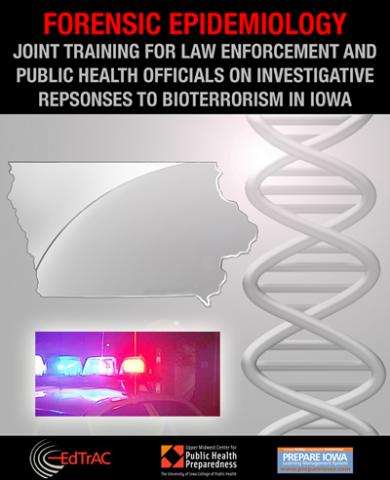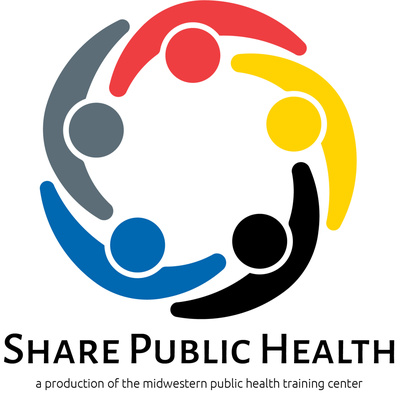Course Summary
There are four modules
in this course:
- Module 1: Public Health Epidemiology for Law Enforcement
Officials - Module 2: Criminal Investigation for Public Health Professionals
- Module 3: The Role of the Laboratory - Public Health and
Forensic - Module 4: Working Together on Investigations
After completing these modules, you will be presenting with three case studies. Problems and
questions will be discussed and you may also involve in a discussion board for
in-depth discussion regarding the case studies.
There are
practice exercises at the end of each module. These practice exercises will
provide you with an opportunity to apply the knowledge and skills presented in
these modules. There is a post-test at the end of case studies.
Intended Audience
Groups of law enforcement officers and public health
professionals who want to learn how to work together in investigating disease
outbreaks that are or may also be crimes, bioterrorism events, or other
deliberately caused outbreaks
Learning Objectives
Module 1: Public Health Epidemiology for Law Enforcement
After completing this module, participants will be able to:
- Define common public health terminology.
- Describe how public health agencies approach preventing and
controlling infectious diseases. - Describe how epidemiologists approach finding, investigating, and
controlling outbreaks.
Module 2: Criminal Investigations and Basics of the Incident
Management System
After completing this module, participants will be able to:
- Discuss the goals of law enforcement in criminal investigations.
- Describe the roles and responsibilities of various law enforcement
agencies. - List and describe the steps involved in a
criminal investigation process.
Module 3: The Roles of the Laboratories -- Public Health and
Forensic
After completing this module, participants will be able to:
- Describe the roles of the public health and forensic (crime)
laboratories. - Discuss public health laboratory procedures in suspected
bioterrorism events. - Discuss forensic laboratory procedures in criminal or terrorism
events. - Outline the chain of custody as it applies to laboratory
specimens.
Module 4: Working Together on Investigation
After completing this module, participants will be able to:
- Define "Incident Command System."
- Describe the components and factors affecting Incident Command
System. - Explain incident command transition considerations.
- Describe implementation of the Federal Response Plan (PDD-39,
PDD-62, HSPD-5) when planning for and responding to a terrorist incident. - List factors that contribute for joint investigations to be
effective. - Explain the different phases of sharing sensitive information for
public health and law enforcement professionals.
Pre-requisites/Learning Level
No pre-requisites
Competencies addressed
Core Competencies for Public Health
Professionals identified:
Domain 1: Analytical/Assessment Skills
- 1A8. Collects valid and reliable quantitative and
qualitative data
Domain 5: Community Dimensions of Practice
Skills
- 5A5. Collaborates with community partners to improve health
in a community (e.g., participates in committees, shares data and information,
connects people to resources)
CEUs Offered
None
Cost
Free
Modality/format
Online Self-Pace
Length
2.5 hours
Presenter(s) and/or Content
Experts
Technical requirements
- Adobe Acrobat Reader
- Flash Player
- Speakers
Registration requirements
Register a free account
Creation and/or update
September 11, 2013





